 The following open letter was written by a young Honduran woman and blogger who, more than being passionate about politics, is passionate to see her country free, without foreign threats, and on a democratic path. It is republished here with her permission:
The following open letter was written by a young Honduran woman and blogger who, more than being passionate about politics, is passionate to see her country free, without foreign threats, and on a democratic path. It is republished here with her permission:
Open letter to Mr. Porfírio Lobo Sosa, Constitutional President of the Republic of Hondurasby: Elena ToledoPresident Lobo:I hope that your daily tasks are illuminated by the divine wisdom. I have never written to a President of the Republic, but the circumstances we now live in Honduras compel me to fulfill my civic duty that is stated by our Constitution in Article 40:
Duties of the citizen: 1. Obey, defend and ensure the compliance of the Constitution and laws.
Mr. Lobo, Honduras is a country that for a while here has become the center of a dispute of many interests, none of them good to be clear. Its geopolitical position is very powerful, but unfortunately only the ones that represent a major threat to our democracy, sovereignty, integrity and legality have realized it.
Hondurans knowing this, and in full convalescence from a severe socio-political process, went to the polls with the best intentions in the world to lift this country, to confide in someone that would consolidate the peace for which everybody had fought, and the chosen by the majority of people was you, on whom fell the responsibility of leading the entire nation to a safe port, where we would strengthen our Rule of Law: Free, Sovereign and Independent as it reads in our national emblem.
But, you have wasted the opportunity to be a great president, and more than that, Patriot. Your counterpart Juan Manuel Santos during your inauguration said: "There are two types of statesmen that make history: those who win wars, and those who make peace." Former President Roberto Micheletti, won the war, and on top of that, brought peace to this country, and your duty would have been to keep the peace and reassure the people of Honduras. But your actions even before taking office, that the people of Honduras gave you, were to destroy the peace that we had achieved.
Zelaya became your shadow, or you wanted it so, for what reasons? You know better than us. You preferred Zelaya, and his allies opposed to the interests of the vast majority of Hondurans. The citizens were in a permanent anxiety when you spoke of reconciliation and unity, it seemed that you were referring to another country, since 90% of us were united, but your interests are remote from our common interests.
Now, we see with great concern the direction that your government has set, seeming to pretend to be a shadow not of Zelaya, but of the Castro Communist Regime led by dictator Hugo Chavez in Venezuela, where 28 million men and women suffer as they see their country sinking every day.
You are the first citizen of Honduras, and who is supposed to give the example of civic behavior and then together build a better country. But when we see that the orders of the Supreme Court are violated, besides having an incomprehensible permissiveness to those who seek to create anarchy, so do not expect the people to support and endorse your actions away from all respect for the Rule of Law.
"Expropriation? "Violation of the principle of Private Property? "Authoritarianism? No respect for the separation of powers? Excuse me Mr. Lobo, but with these features, any Venezuelan who reads this letter, will wonder if I am referring to his country, and above all the insecurity that we live daily in the streets of our cities is alarming and painful.
When power does not benefit the majority, but only a few, is now no longer power but becomes a dictatorship. I know that is not just my voice, is also that of millions of compatriots who are once again afraid that ghosts of the past take over our beloved country.
Rectify the course of your administration Mr. Lobo and the Hondurans will support you, otherwise, we will ensure that while your attitude is of disrespect to us, Honduras will have tomorrow, but not a future, which will be mortgaged to an imported ideology and that this humble, small but wide awake people, identifies in the distance.
May God fills you with wisdom and common sense in your actions, and let you see that is in your hands to lift this worthy country, or plunge it into an unprecedented social crisis.
Yours truly, a citizen…
Elena Toledo Chirinos
Elena blogs at Camino Democrático and Venezuela Secuestrada.








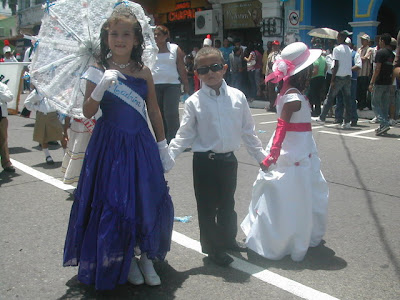








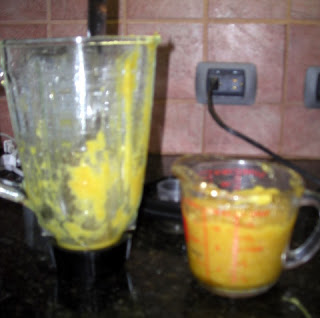








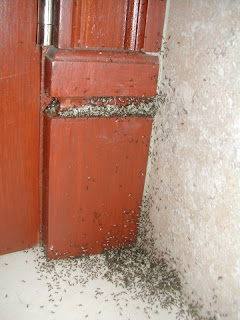

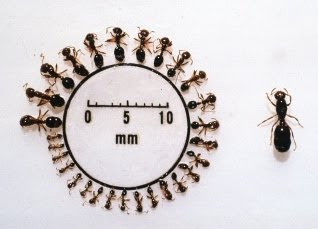


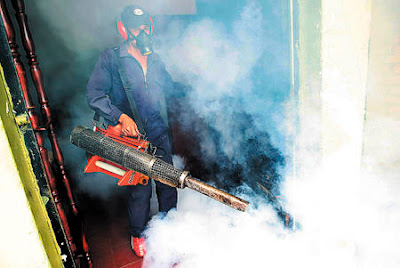




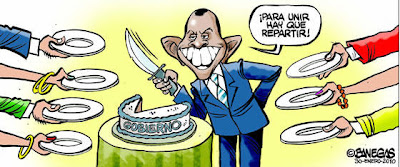
 Welcome to my Blogicito —
Welcome to my Blogicito — 








